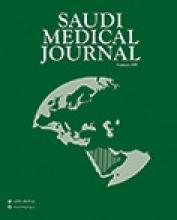AUGUST 6, 2018 - Among individuals with head and neck cancer (HNC), those who experienced childhood trauma were more likely to have advanced cancer, to have higher alcohol consumption, and to experience symptoms of anxiety and depression. Published early online in CANCER, a peer-reviewed journal of the American Cancer Society, the findings indicate that childhood trauma history should be considered during treatment for HNC.
Individuals may experience high levels of stress, anxiety, and depression during and after cancer diagnosis and treatment. Patients with HNC display emotional responses that may affect their adherence to treatment, and the maintenance of smoking and alcoholism.
Traumatic events in childhood have also been linked with the occurrence of anxiety and depression in adulthood. To evaluate the occurrence of childhood trauma in HNC patients and its association with anxiety and depression, a team led by Daniel Bernabé, PhD, of São Paulo State University, in Brazil, analyzed information on 110 patients with head and neck squamous cell carcinoma after they were diagnosed but before they started treatment.
Among the 110 patients, 105 (95.5 percent) had experienced at least one type of childhood trauma. The most common childhood trauma reported was emotional neglect (43.8 percent), followed by physical child abuse (30.5 percent), emotional child abuse (15.2 percent), and physical child neglect (8.6 percent). Only two patients (1.9 percent) reported sexual abuse.
Emotional neglect (absence of emotional support, as well as negligence related to child’s complaints) was linked with advanced cancer stage and higher alcohol consumption. Experiencing child physical neglect (not receiving necessary care so that physical health is endangered) was a predictive factor for increased anxiety levels. Also, patients who had a higher occurrence of traumatic events in childhood had an almost 12-times higher likelihood of having increased depression levels before starting cancer treatment.
“Assessing traumatic events experienced in childhood may be of great value in understanding neuropsychological mechanisms related to alcohol abuse and anxiety and depression symptoms in patients with cancer. Therefore, the life history of the cancer patient, including their traumatic memories and derived feelings should be considered by the health team during the treatment of cancer patients.” said Dr. Bernabé.
Full citation: “Childhood trauma is predictive for clinical staging, alcohol consumption, and emotional symptoms in head and neck cancer patients.” Bruna Amélia Sarafim-Silva, Gabrielle Duarte, Maria Lúcia Sundefeld, Ricardo Eder Biasoli, Glauco Miyahara, and Daniel Bernabé. CANCER; Published Online: August 6, 2018 (DOI: 10.1002/cncr.31597).
Copyright © 2018 The Cochrane Collaboration. Published by John Wiley & Sons, Ltd., reproduced with permission.
- Copyright: © Saudi Medical Journal
This is an open-access article distributed under the terms of the Creative Commons Attribution-Noncommercial-Share Alike 3.0 Unported, which permits unrestricted use, distribution, and reproduction in any medium, provided the original work is properly cited.






